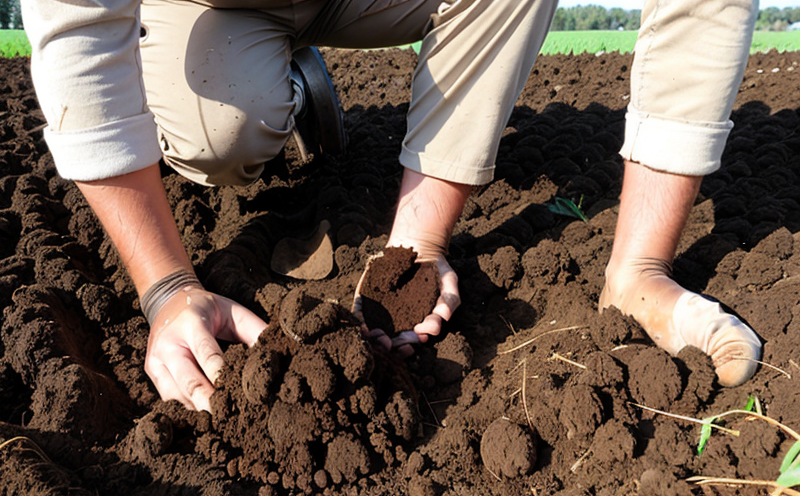Soil Exchangeable Aluminum Testing
The testing of soil exchangeable aluminum is crucial in agriculture and forestry sectors as it helps to determine the availability of aluminum in the root zone. This test plays a vital role in understanding how available forms of aluminum might affect plant health, nutrient uptake, and overall soil fertility.
Aluminum is an essential micronutrient for plants but can become toxic at high concentrations. In acidic soils, aluminum becomes more mobile and can be taken up by plants in excessive amounts, leading to toxicity symptoms such as chlorosis, root growth inhibition, and reduced yields. Testing soil exchangeable aluminum helps farmers and forestry managers make informed decisions about fertilization practices, liming strategies, and overall soil management.
The process involves extracting the soil with a buffer solution that simulates rootzone conditions. The extracted liquid is then analyzed to measure the concentration of exchangeable aluminum. This method ensures accurate representation of the forms of aluminum available for plant uptake in the field. Understanding these parameters allows for precise calibration and application of lime or other amendments to maintain optimal soil pH levels.
For quality managers and compliance officers, this test is essential as it aligns with environmental standards such as ISO 17248-3:2016, which provides guidance on the determination of exchangeable cations in soils. It ensures that agricultural practices are sustainable and compliant with international guidelines.
| Application | Description |
|---|---|
| Farmers | Evaluate soil conditions and adjust fertilization practices. |
| Forestry Managers | Monitor soil health to prevent forest decline due to aluminum toxicity. |
| Agricultural Researchers | Conduct experiments on the effects of different pH levels and amendments. |
Benefits
Evaluate soil conditions accurately to ensure plant health and productivity.
Identify potential aluminum toxicity risks before they become critical issues.
Achieve sustainable agricultural practices by optimizing nutrient use efficiency.
Compliance with environmental regulations and standards like ISO 17248-3:2016.
Precise calibration of lime or other amendments to maintain optimal soil pH levels.
Industry Applications
- Farmers can use the results to tailor fertilization and liming practices to specific soil conditions, ensuring nutrient availability without causing toxicity issues.
- Forestry managers rely on these tests to monitor the health of their forests, especially in regions with naturally acidic soils. This helps prevent widespread forest decline due to aluminum toxicity.
Customer Impact and Satisfaction
Customers who use our soil exchangeable aluminum testing service benefit from reliable data that informs their decision-making processes in agriculture and forestry. Our tests provide accurate, actionable insights into the availability of aluminum in soils, helping to avoid potential issues such as plant toxicity and reduced yields.
Quality managers can ensure compliance with environmental regulations and standards.
R&D engineers gain valuable data for developing new products or improving existing ones related to soil health.
Compliance officers use the results to verify that agricultural practices are sustainable and meet regulatory requirements.





